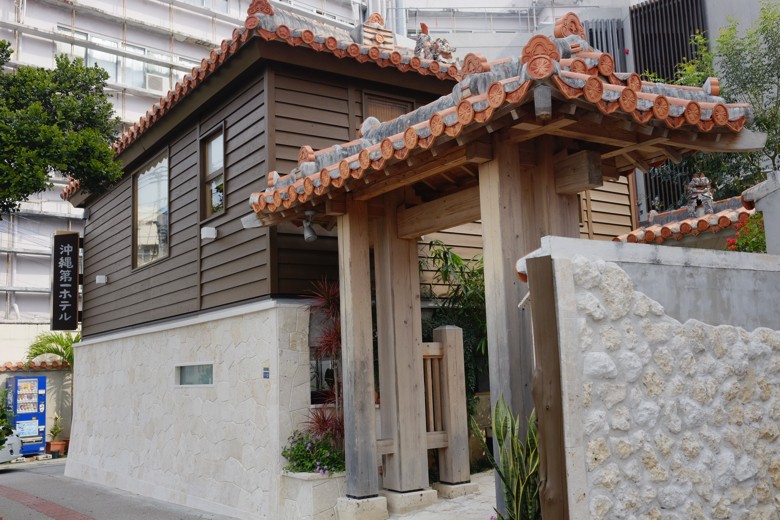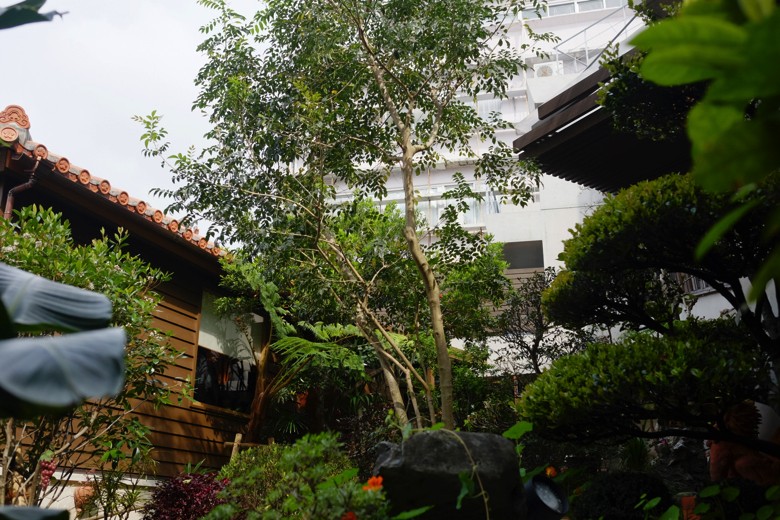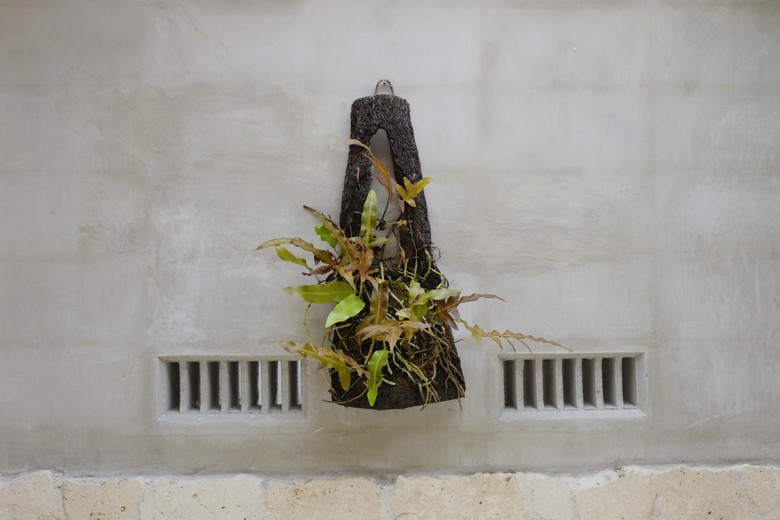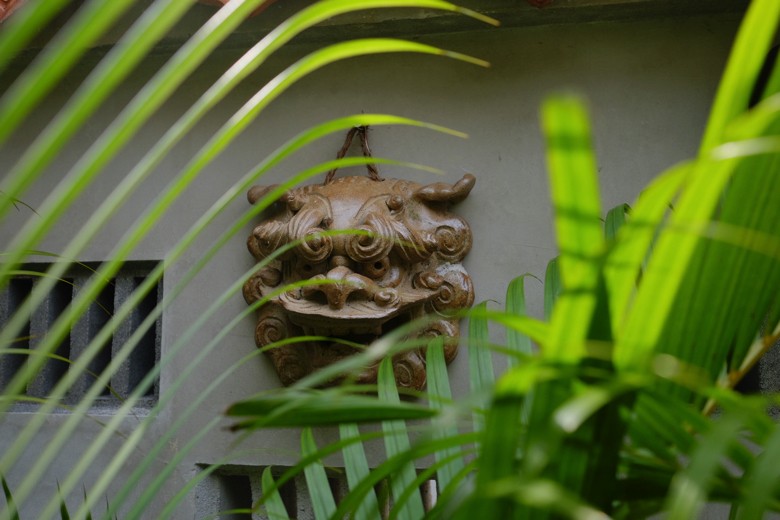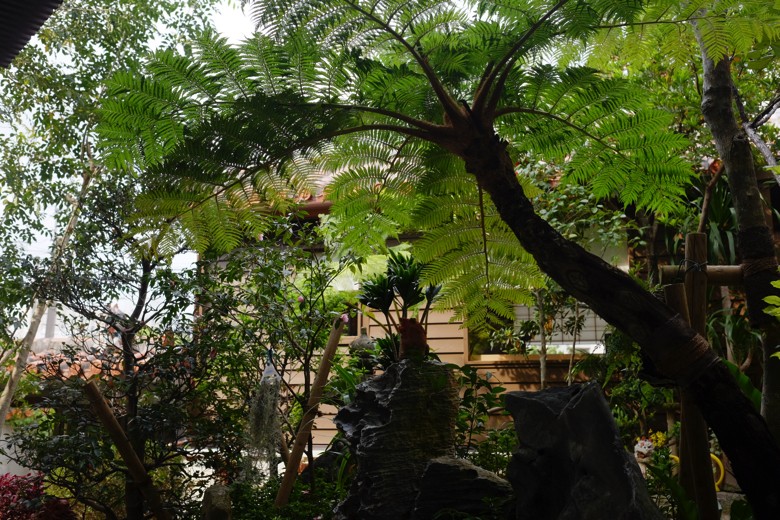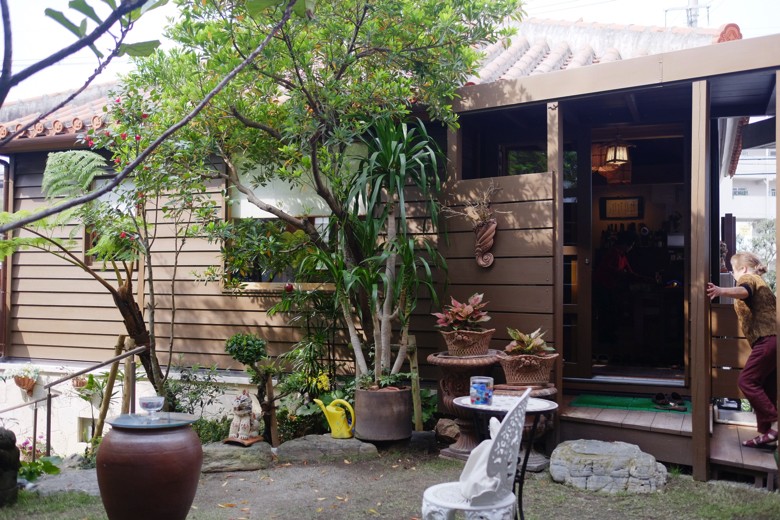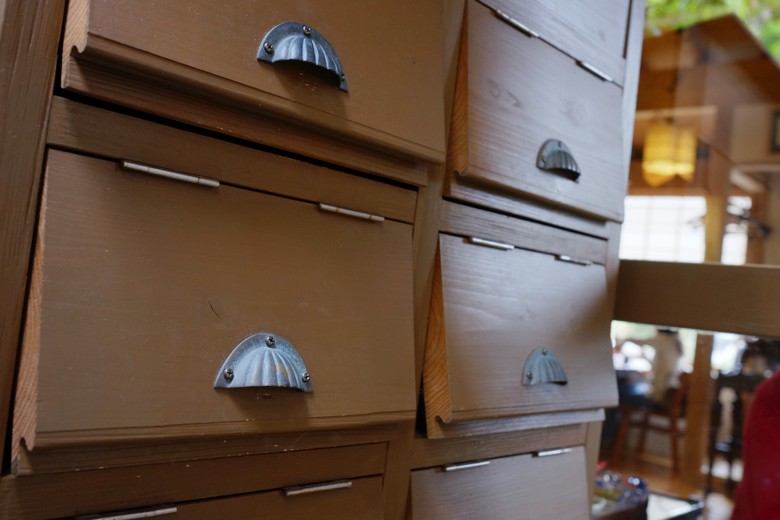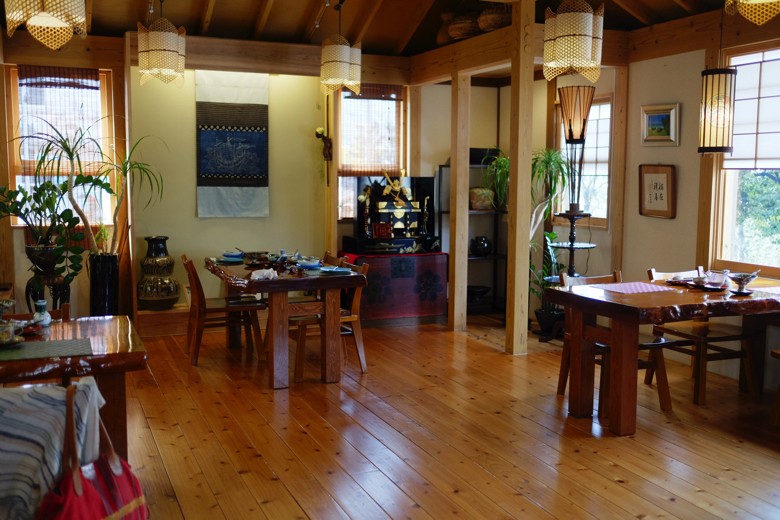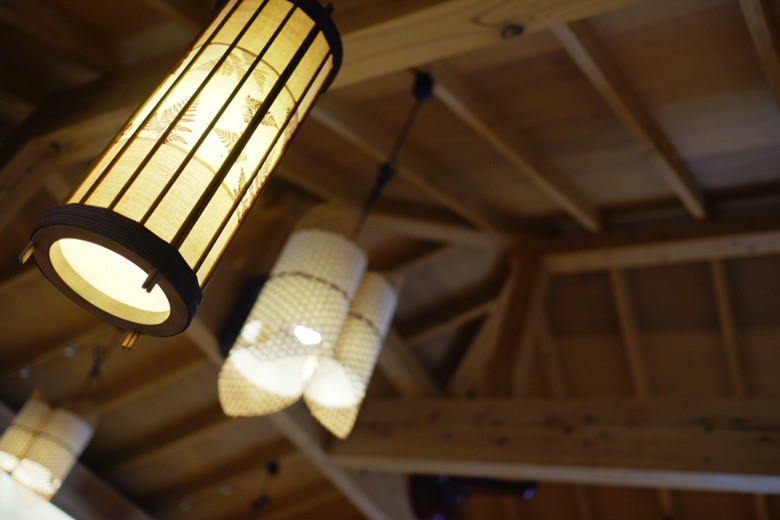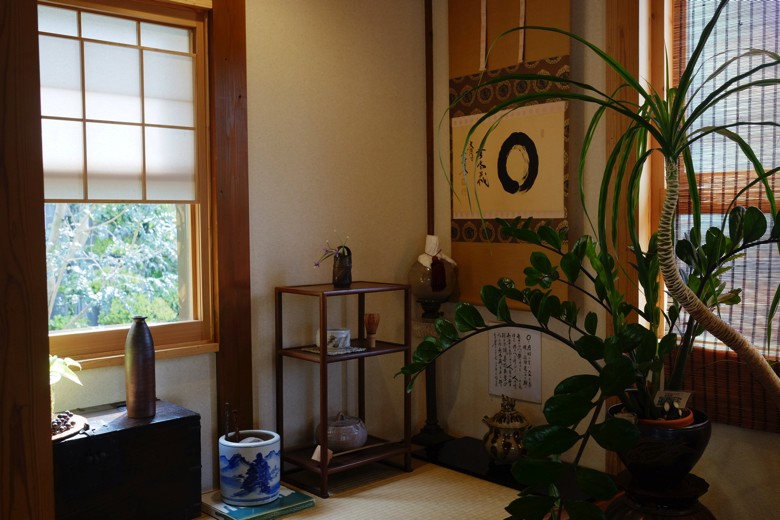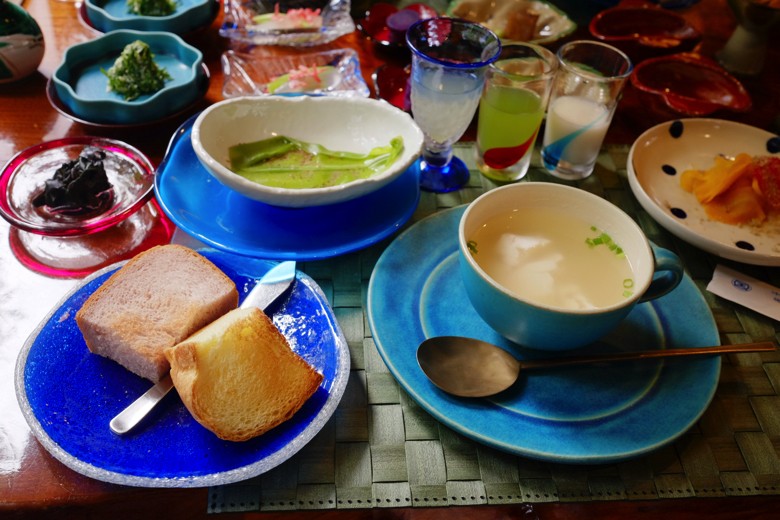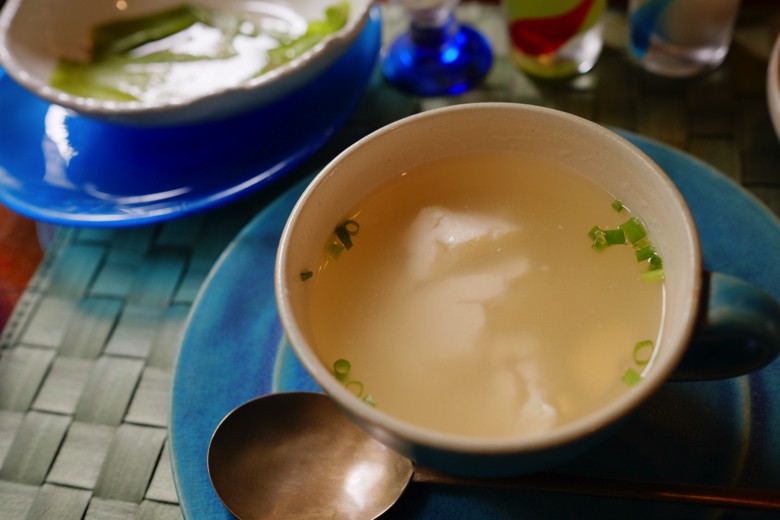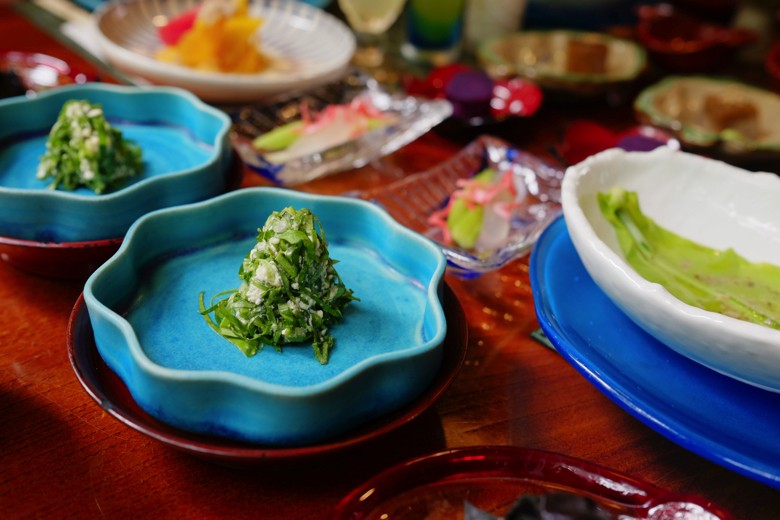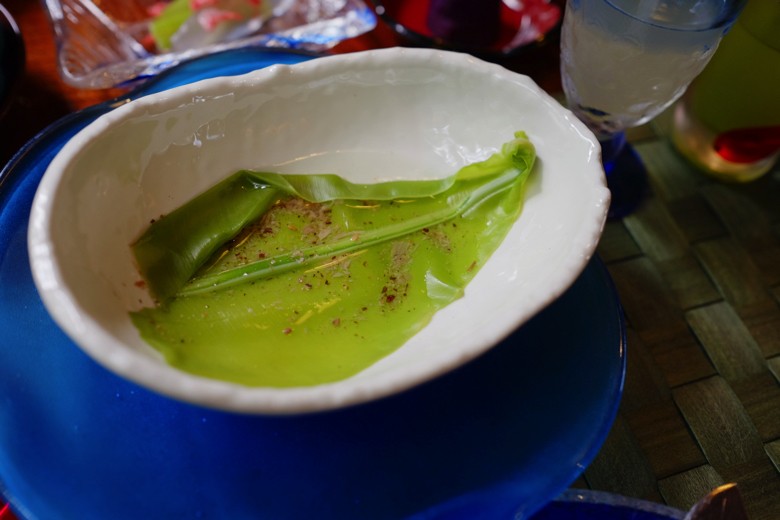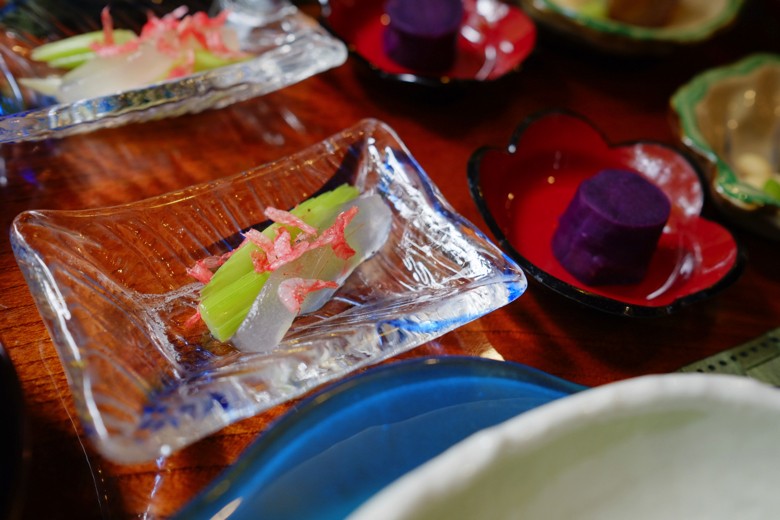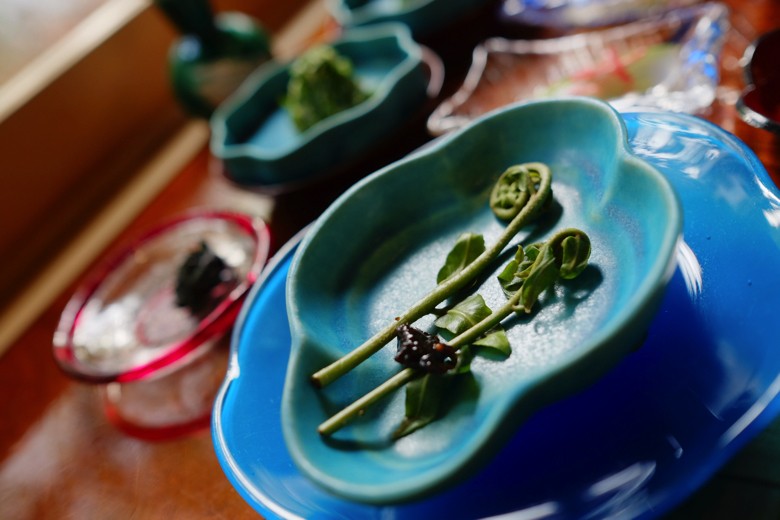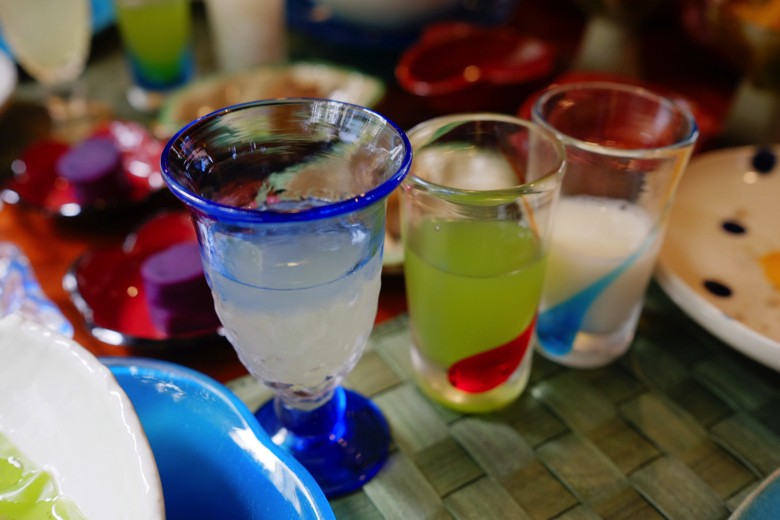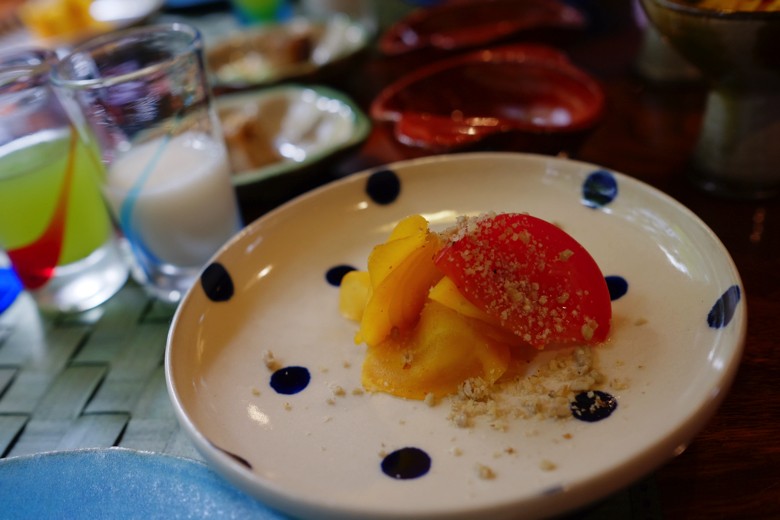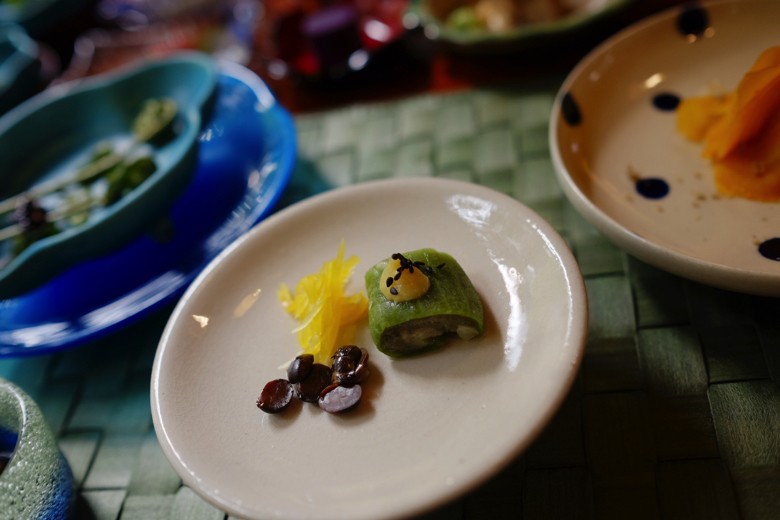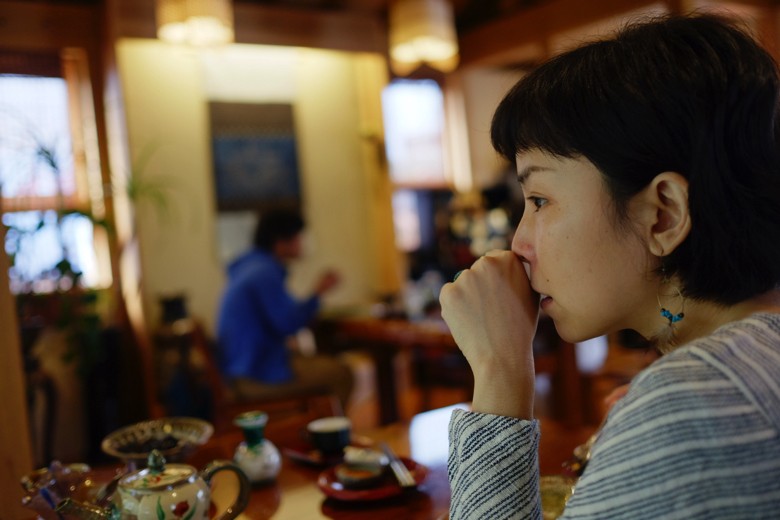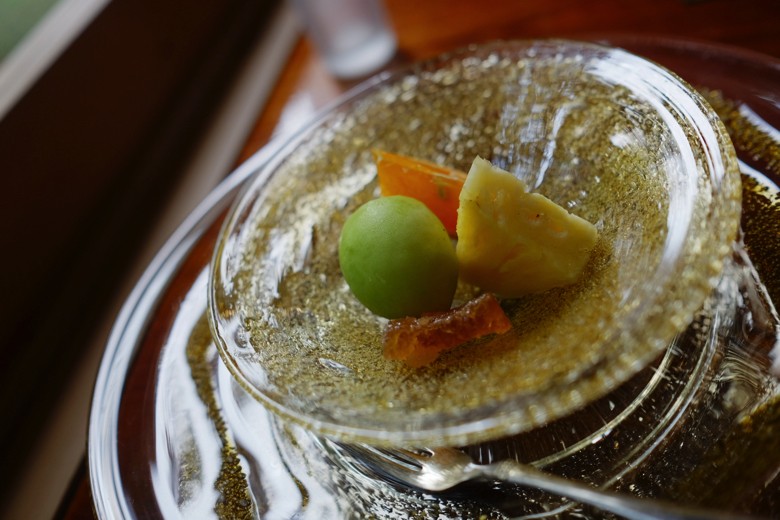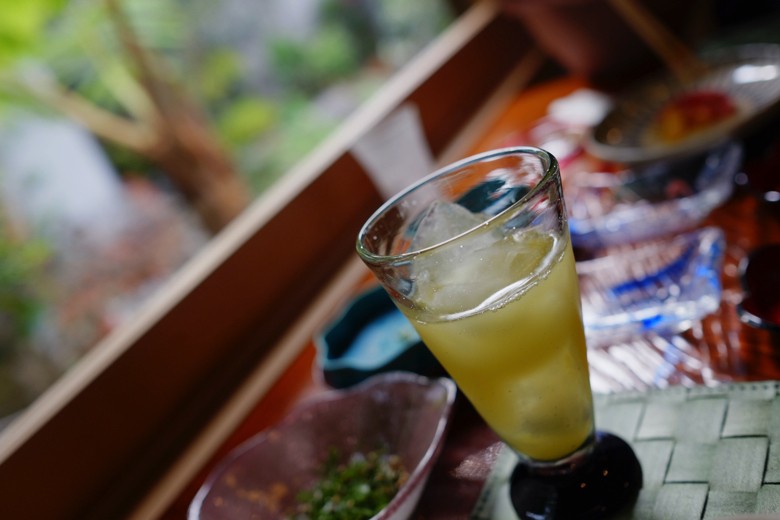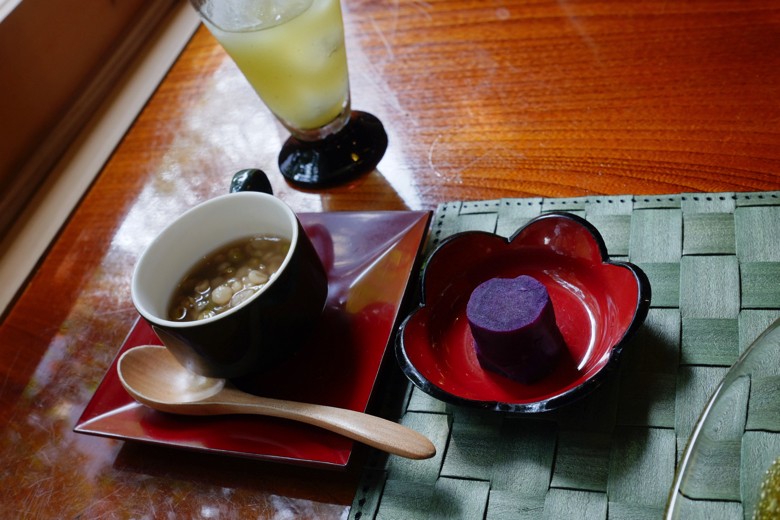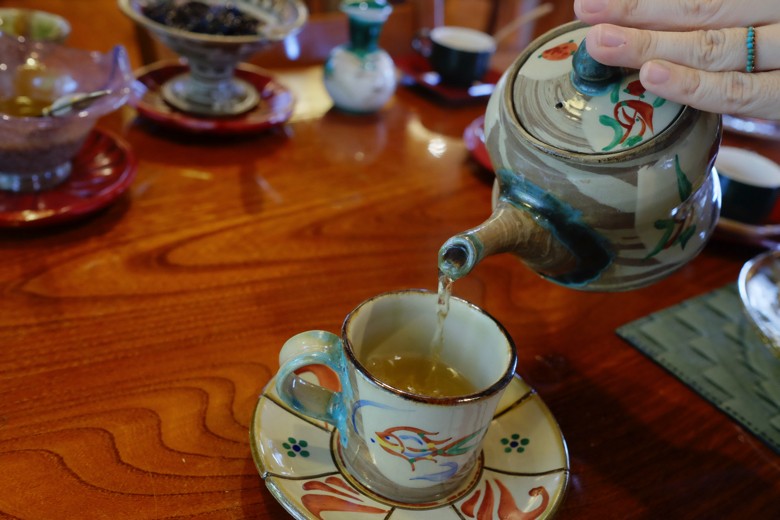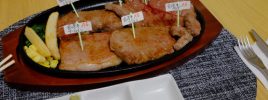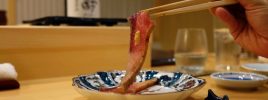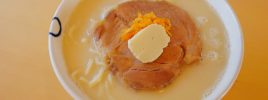Just off the bustle of Kokusai Street, Okinawa Dai-ichi Hotel maintains its premises quite, private and very comfortable. 3 buildings are surrounding a nice garden in the middle.
Okinawa Dai-ichi Hotel is a small hotel with only 5 rooms, operated by a local family. No relations with a nation wide hotel chain of Tokyo Dai-ichi hotels.
Their breakfast was started 40 years ago by the lady owner and now has been passed on to her daughter. It has solid reputations for nourishing veggie cooking.
This is the restaurant. Reservation is required a day prior. Breakfast starts from 8:00, 9:00 or 10:00.
We had a reservation at 9:00. 50 minutes for each group.
This is a shoe cabinet, just in case.
A very spacious dining for only 3 tables.
Wow. So many little things. And they just keep coming.
50 items. 585k calories total. All local veggies with healing properties. (The base broth must be traditional Japanese with fish and kombu, though). A mix of Okinawan tradition and creative cooking.
Tofu soup was excellent. And I knew it was going to be a good breakfast. You can’t go wrong when you have good broth base.
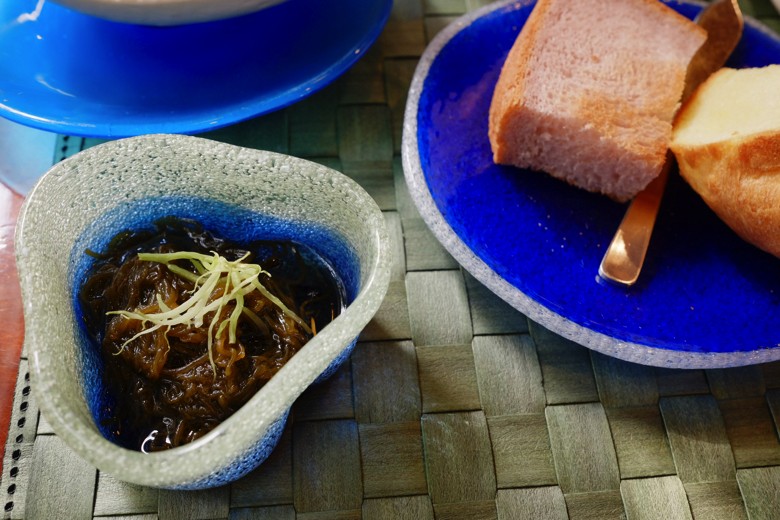
House baked bread of purple potatoes and of turmeric.
The Mozuku seaweed vinegared. Mozuku is rich in fucoidan, a kind of dietary fiber that has anti-aging, anti-cancer, and other healing properties.
Nigana is a daisy family. The name means “bitter leaf”. It has been uniquely eaten in Okinawa as a medicine to keep your stomach healthy. This one was with nutty Tofu paste.
Bird’s Nest Fern. My Aussie friends would be surprised but the shoots are edible and pretty common in Okinawa and Taiwan.
Lightly boiled in Japanese broth.
Celery and Aloe Vera marinated. Nicely seasoned.

Cho Mei Sou or Sakuna (okinawan name) is a parsley family. The name means “longevity plant” The owner explained that it is just a perfect vegetable. The plant has it all. So rich in vitamins, minerals, and polyphenols. Great in antioxidative effect, removes free radical, cleanses intestines, and promotes urine.
Probably in order to lose any of its nutritions, it was not heated. It was a salad.
Miyako fern. A unique species to Miyako island. Very hard to get it because it is handpicked from wild mountains.
3 kinds of fresh juice.
From the left, Okinawan citrus, Sakuna, and soy milk.
Okinawa carrot. Beautifully marinated with sprinkles of walnuts, sunflower seeds and another nut that I forgot. The carrot had such a sweet flavor. Okinawa carrot is in season now.
The owner is so proud and in love with Okinawan vegetables. “Bitter ones are bitterer, sweet ones are sweeter, aroma is just richer”, she said, “so rich in nutritions, so high in healing properties.”
The green one is a fresh date palm seed. I’ve never had a fresh one before. It tasted like a Japanese pear. Light in sweetness and so juicy. The owner explained that one of Okinawan farmers started growing date palms just recently.
This is 100% sugar cane juice (a side order). It was very refreshing with light sweetness and rich aroma.
Well, it was quite a nice experience. Nothing fancy, really. Simple good cooking. Very nourishing food which lets the vegetable do the talking.
This place would be great when we treat our guests in the morning in Naha. So much better than hotel breakfast buffet. I wonder what the dinner is like here. But definitely I should mark this breakfast.
okinawa dai-ichi hotel

